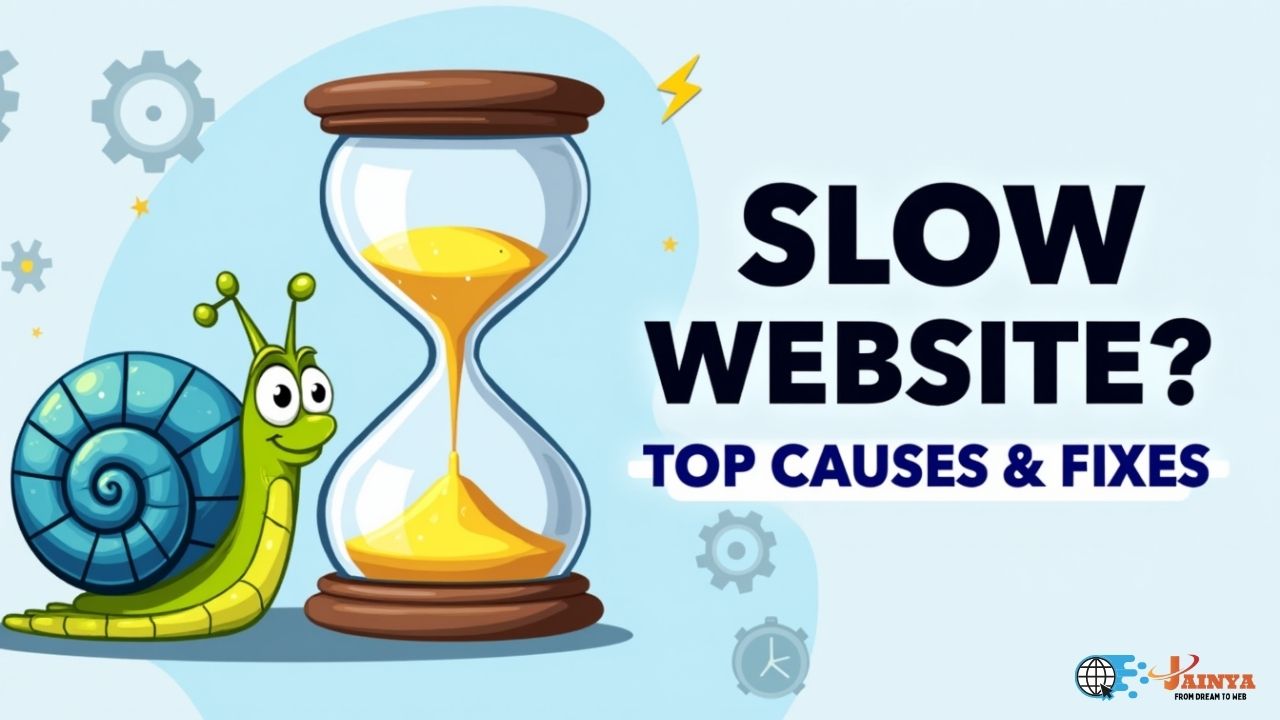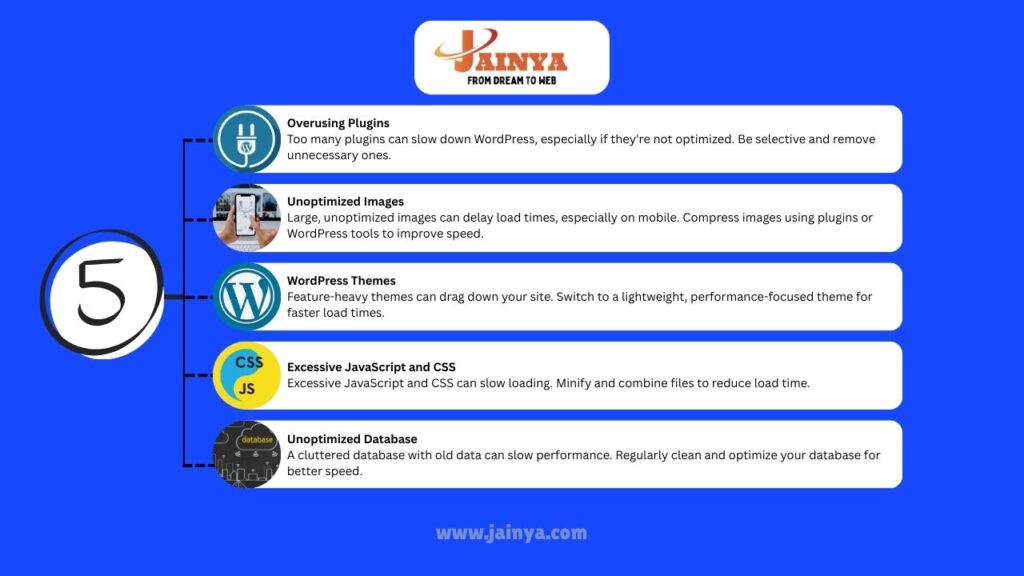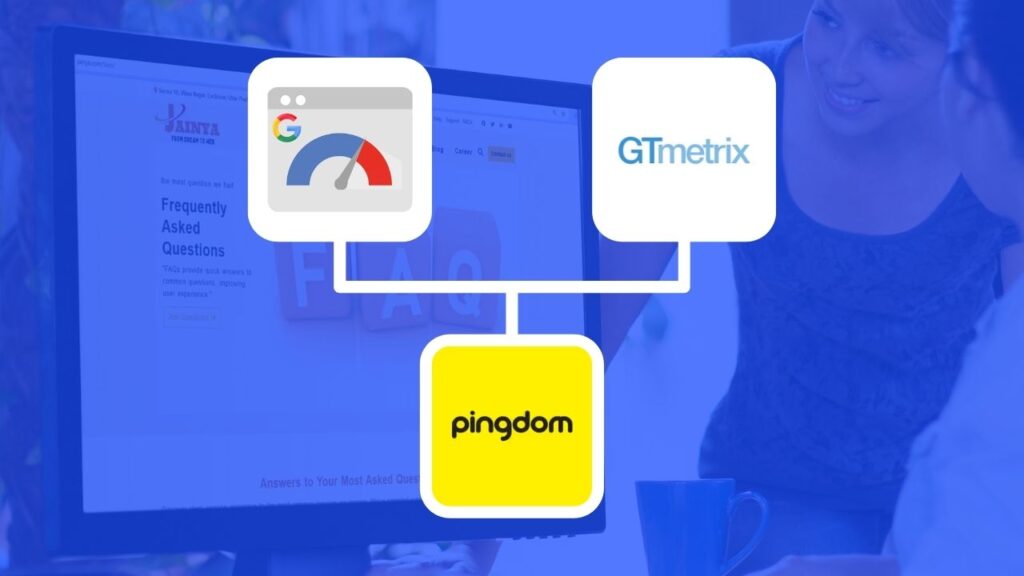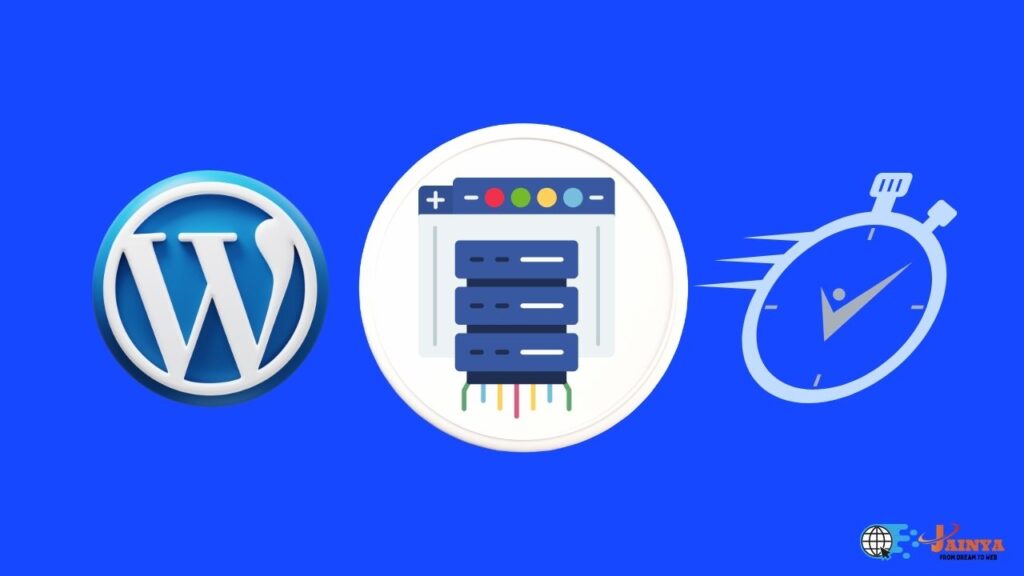Is your WordPress site slow? Discover the common causes like plugins, unoptimized images, and themes, and find a WordPress website design agency-Jainya Enterprises that can solve these issues and boost your site’s speed.

If you’ve found that your WordPress website slow loading time, it’s both an annoying issue and a potentially damaging one in relation to your clients. Slow websites can result in higher bounce rates, bad ranking on search engine in the world. And these are not just assumptions.
Don’t panic, though: You can use some basic coding knowledge, or feel free to contact us—our dedicated team is always here to help resolve any website-related issues.
5 Mistakes: WordPress website slow to load

You may not know, but a few common mistakes can slow down your website. A big problem is overusing plugins. Many users have asked multiple times, do plugins slow down WordPress?.
Although plugins are fantastic things that add a whole lot of functionality to your site, having too many plugins installed can be a drag to your WordPress site’s performance particularly if they aren’t properly optimized. As always, be mindful of only installing the plugin that you absolutely need and regularly audit them to remove anything that is unused or outdated.
Heavy unoptimized images are another frequent problem. We all understand that images can help to bring life to your site, but if they are large, or not optimized for the web, they can negatively affect the speed of your WordPress website – especially on mobile.
Optimize your images with image compression plugins or WordPress’ own features to keep file sizes small without sacrificing quality.
Second, a badly coded or a bloated WordPress theme can cripple your performance. There are themes that ship with a lot of un-needed features that you’d likely never use. 2. You’re using a WordPress theme that doesn’t focus on performance Drag on performance is never helped by a theme that loads in a whole bunch of features that you’ll never actually use, which means if you’re using a feature-heavy theme, it’s probably time to switch to a lightweight, cut-and-dry theme.
How to Test Your Site’s Load Time
Now that you know some things that can slow down your site, it’s important to test how slow your WordPress site actually is. Fortunately, it’s easy to assess your website’s loading time and get a better sense of what work you need to do.

You can do this easily using any free online tools like Google PageSpeed Insights; GTmetrix or Pingdom. These tools will help you to analyse your website performance and tell you what’s slowing your website. They will dissect your site’s speed for desktop as well as mobile, making it especially useful if you suspect that mobile performance has been relatively slow. These solutions also identify provisions for improvement, by letting you know the steps that can be taken to address each item.
“If you perform these tests, pay attention to time to first byte, first contentful paint and largest contentful paint metrics. They are important because they measure how long it takes for key elements of your site to load, and if you can make these faster you will often see a huge improvement in load times, particularly on mobile.
Enhancements to Speed via Tools and Plugins
So how do we address all of this? The good news is there are several tools and plugins you can use to enhance your WordPress website’s performance. To begin with, you definitely need a caching plugin. These plugins serve to make static versions of your dynamic pages, allowing you to effectively reduce server load by multiplying page-loading speeds. Some of the popular options are WP Rocket, W3 Total Cache and Litespeed Cache.
One another must-have tool is an image optimization plugin. (Like plugins such as Smush or ShortPixel, which can automatically compress images as they’re uploaded to WordPress.) These plugins will help keep your image sizes small, without sacrificing quality, in order to speed your site up, particularly for mobile users who could have slower connections.
And for the über geeks, there is a Content Delivery Network (CDN) you can use as well. CDNs such as Cloudflare or KeyCDN keep a copy of your site on servers at nodes in a global network. This in turn means that anyone who opens your website, their browser will get your files from the closest server, with a significant decrease in loading time, especially for mobile users whose locations is relatively far from the server.
Must Have Hosting Features for WordPress Speed

Your hosting company also impacts the speed of your site lastly. Not all hosting plans are the same and getting the right one can mean a world of difference in how fast your WordPress site loads. If you choose a hosting provider that offers SSD storage, PHP 7.4 support, and auto-scaling, you’ll be well on your way. These will guarantee that your server can manage significant traffic loads and deliver faster load times for all users (mobile users included).
If your site is still slow after making all the best optimizations, maybe it’s time for an upgrade in hosting. Think about managed WordPress hosting by companies like WP Engine or SiteGround. These hosts focus on WordPress and have performance and security customizations already configured.
Again, fast hosting, along with properly optimized plugins and tools will make sure your site’s performance doesn’t sink like a ship in the North Atlantic and alleviate your headaches over slow as molasses on a cold day mobile load times.
Wrapping It Up
A sluggish WordPress website can negatively affect your user engagement and rankings, but with the right tools and plan, you can achieve a relatively fast site. But by pinpointing common errors, testing how long it takes your site to load, taking advantage of the best plugins and selecting the right hosting provider, you can correct the issue. To help assure your WordPress site is speedy and mobile-friendly, try these work-arounds!
You may not be aware of it, but there are a few common mistakes working to slow your site down unnecessarily. There are a couple of big culprits for that. While plugins are awesome for adding functionality to your site, cramming your WordPress with unused ones can hurt performance big-time, especially if they’re not built with performance in mind. Always keep an eye on what plugins you’re adding nothing’s more frustrating than encountering a plug-in conflict you don’t even need!
Another frequent suspect are large, unoptimized images. Images are great for improving the visual appeal of your site, that much is common knowledge. If they’re large, or not designed for the web, they can also contribute to a slow website, which is more of the case on mobile. Leverage image compression apps or simply the in-built options of WordPress to compress the file sizes while retaining the quality.
And you can have a performance dragging WordPress theme if is bad coded or bloat bloated. Some themes have too much sidebar, features you will never use. If you’re using a heavy-feature theme, that doesn’t really make performance a priority, you could move over to a lightweight and performance-first kind of theme.

Leave a Comment